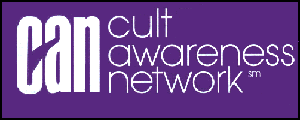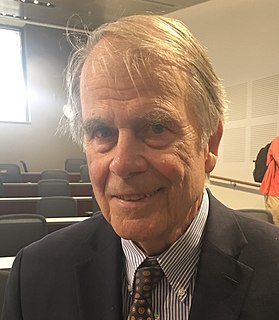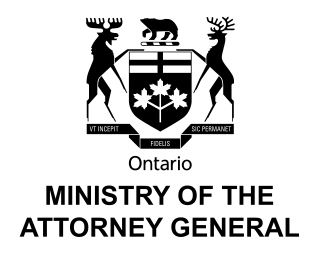The Church of Scientology has been involved in court disputes in several countries. In some cases, when the Church has initiated the dispute, questions have been raised as to its motives. The Church says that its use of the legal system is necessary to protect its intellectual property and its right to freedom of religion. Critics say that most of the Church's claims are designed to harass Suppressive Persons, people who impede the progress of the Scientology movement.

The Cult Awareness Network (CAN) was an organization created by deprogrammer Ted Patrick that provided information on groups that it considered to be cults, as well as support and referrals to deprogrammers. It was founded in the wake of the November 18, 1978 deaths of members of the group Peoples Temple and assassination of Congressman Leo J. Ryan in Jonestown, Guyana, and was shut down in 1996. Its name and assets were later bought by a group of private donors in bankruptcy proceedings; with the transfer of ownership, the organization was renamed the New Cult Awareness Network.

Hill v Church of Scientology of Toronto February 20, 1995- July 20, 1995. 2 S.C.R. 1130 was a libel case against the Church of Scientology, in which the Supreme Court of Canada interpreted Ontario's libel law in relation to the Canadian Charter of Rights and Freedoms.

The Nationalist Party of Canada is an unregistered Canadian political party that was founded in 1977 by Don Andrews, who continues as leader of the party. The purported goals of the party are "the promotion and maintenance of European Heritage and Culture in Canada".
Clayton Charles Ruby, is a Canadian lawyer and activist, specializing in constitutional and criminal law and civil rights.
Donald Marshall Jr. was a Mi'kmaq man who was wrongly convicted of murder. The case inspired a number of questions about the fairness of the Canadian justice system, especially given that Marshall was Aboriginal; as the Canadian Broadcasting Corporation put it, "The name Donald Marshall is almost synonymous with 'wrongful conviction' and the fight for native justice in Canada." The case inspired the Michael Harris book, Justice Denied: The Law Versus Donald Marshall and the subsequent film Justice Denied. His father, Donald Marshall Sr., was grand chief of the Mi'kmaq Nation at the time.

Paul James Cosgrove,, is a former Canadian jurist as well as a former politician.
Patricia "Patti" Starr is a former administrator and novelist. She was the chair of Ontario Place from 1986 to 1989. In 1989 she was implicated in a political scandal that resulted in her being convicted of fraud and breach of trust for which she spent two months in jail. In 1996 she received a full pardon. Since then she has written a book about the affair entitled, Tempting Fate: A cautionary tale of power and politics and has also written two novels. She now works as a researcher and a 'fact checker'.

Innocence Canada, formerly known as the Association in Defence of the Wrongly Convicted (AIDWYC), is a Canadian, non-profit legal organization. Based in Toronto, Innocence Canada identifies, advocates for, and helps exonerate individuals who have been convicted of a serious crime which they did not commit and to preventing future wrongful convictions through education and justice system reform.
Grenville Christian College is a former Anglican Diocese of Ontario affiliated private boarding school located in the rural community of Maitland, some 8 km (5 mi) northeast of Brockville, Ontario, on the bank of the St. Lawrence River.
This is a Timeline Of Scientology, particularly its foundation and development by author L. Ron Hubbard.
Scientology in the United Kingdom is practised mainly within the Church of Scientology and its related groups which go under names including "Hubbard Academy of Personal Independence" and "Dianetics and Scientology Life Improvement Centre". The national headquarters, and former global headquarters, is Saint Hill Manor at East Grinstead, which for seven years was the home of L. Ron Hubbard, the pulp fiction author who created Scientology. Church-connected groups promoting aspects of L. Ron Hubbard's teaching, including Narconon and CCHR, have also been active in the UK, in some cases with charitable status. There have also been groups practising Scientology independently of the Church.

The Church of Scientology of France is organized as a group of secular nonprofit organizations. France is a secular state, which protects the rights of citizens to practice their religion. Although citizens can form religious associations based on the 1905 French law on the Separation of the Churches and the State, which grants certain benefits, the Church of Scientology of France is instead organized into secular associations based on a 1901 law regarding nonprofit groups.
Scientology in Canada has encountered difficulties in obtaining status as a tax exempt organization, as has happened in other countries.

R v Basi is a landmark decision by Supreme Court of Canada where the Court weighed the rights of the defendant versus the privileges of an informant in an important trial into alleged government corruption.
Kevin Mark Murphy is a Canadian musician and criminal lawyer, best known as a co-founder of the Ottawa-based music group, Singing Fools.

Whiten v Pilot Insurance Co, 2002 SCC 18, [2002] 1 S.C.R. 595 is a leading Supreme Court of Canada decision on the availability of punitive damages in contract. The case related to the oppressive conduct of an insurance company in dealing with the policyholders' claim following a fire. According to the majority, "[t]his was an exceptional case that justified an exceptional remedy."
Topfreedom in Canada has largely been an attempt to combat the interpretation of indecency laws that considered a woman's breasts to be indecent, and therefore their exhibition in public an offence. In British Columbia, it is a historical issue dating back to the 1930s and the public protests against materialistic lifestyle held by the radical religious sect of the Freedomites, whose pacifist beliefs led to their exodus from Russia to Canada at the end of the 19th century. The Svobodniki became famous for their public nudity: mostly for their nude marches in public and the acts of arson committed also in the nude.

Robert Patrick Armstrong is a Canadian lawyer and retired judge. He served on the Court of Appeal for Ontario from 2002 until his retirement in 2013. Before serving on the bench, Armstrong was a partner at Torys and was lead counsel in the Dubin Inquiry on steroid use in Canadian sports. After leaving the bench, Armstrong joined Arbitration Place, a Canadian group specializing in alternative dispute resolution.










